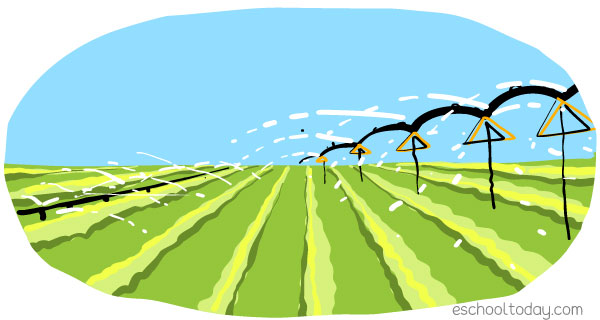- Water Scarcity
Important water scarcity terms
Water Scarcity
It is the absence of (lack of) water, or inadequate safe water in any geographic area for humans, animals, and environmental use. In many places, there may be water (fresh flowing water) not far off, but there are simply very few resources (money and ability) to bring it home. That is called economic water scarcity. On the other hand, there could be physical scarcity, which means there is no water at all (or just not enough).
Water stress
It is usually confused with water scarcity. In a way, water stress is the result of scarcity in the sense that the water demand far exceeds the available amount. That causes the deterioration of freshwater and results in a drought.
Potable water
Potable water is water that is considered safe enough for human consumption with little risk of short and long-term harm. It is usually known as wholesome water. Water can be called wholesome only after experts test and confirm that the water complies with specific standards set by the authorities.
Irrigation

Irrigation is the application of water to crop farms to provide the plants with water to grow. Irrigation can increase yields of most crops by 100 to 400%. Farmers who switch from surface irrigation to localized irrigation can cut their water use by 30 to 60%. FAO
Waterborne diseases
These are diseases that are transmitted by drinking contaminated water. Examples of such diseases include Typhoid fever, Malaria, Hepatitis A, Cholera, and Bacillary Dysentery/Shigellosis.
Brackish water
That is water that has higher salt content, but not as high as seawater. This kind of water is often found where freshwater meets seawater (estuaries, deltas, and mangrove swamps). Usually, brackish water has fewer living organisms in it.
Aquifer
Beneath the earth’s surface are rocks. Some of these rocks are porous and permeable and allow water and gases to flow through them freely. These water-bearing rocks are called aquifers. Water from aquifers tends to be very pure if not exposed to soil pollution.
Freshwater consumption:
The portion of water that is withdrawn from a source that is no longer available to be returned to that water source, in the sense that it was completely used up or has evaporated.
Freshwater withdrawal:
The portion of water that is removed from the ground, or diverted from a surface water source, such as a river or lake.
